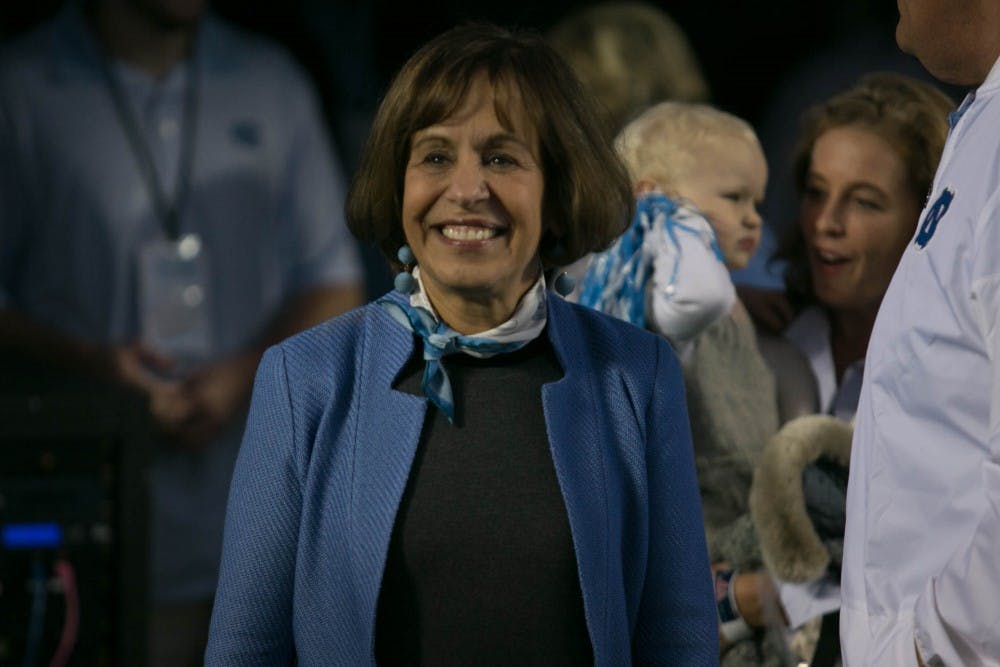Following the tear down of Silent Sam in August of 2018, former Chancellor Carol Folt spent a semester weaving through a complicated political process involving multiple actors at the University and state levels.
As the face of the University, she underwent criticism from the student body, and later the Board of Governors, for her inability to produce a hardline decision on the statue’s fate during her tenure.
In January, Folt ultimately authorized the removal of Silent Sam’s pedestal, which had lingered on McCorkle place since the statue was brought down by demonstrators. She accompanied the move with her resignation — initially planned for the end of the academic year but accelerated by the BOG to the end of the month.
“I think she sacrificed herself,” said Jane Tullis.
During the 2018-19 year, Tullis served on the Student Advisory Committee to the Chancellor (SACC). Once a month she, along with a group of 10 other undergraduate and graduate students, would have a face-to-face meeting with the chancellor in South Building, in which the two sides would bounce ideas and concerns off one another, and the Office of the Chancellor found ways to incorporate the student voice into its decision-making process.
Members of SACC said Folt was more measured and calculated in her public persona than she was in her private talks with students.
“In private, she was definitely more in solidarity with students and really wanted to hear the student voice,” said Madison Knowles, another committee member.
Chancellor Folt tasked SACC in September with surveying UNC students, hoping to understand the mindset on campus regarding opinions on the statue’s placement. Around 500 responses were received, and members say that Folt was receptive of their findings and incorporated them into her decision making. The survey reported that 50% of respondents polled would prefer the statue be relocated, with other respondents voting in favor of repurposing or replacing it.
“She wanted to get a perspective of what students wanted before making any certain prospective actions,” said Nisarg Shah, a first-year Morehead-Cain scholar on the committee. “She didn’t think we should be limited in our thinking because of what the BOT and BOG wanted to do.”



